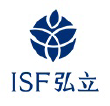On Gain and Loss
May 10, 2024
The shared human journey through infancy, childhood, and adolescence towards adulthood is informed by a singular drive to gain knowledge and skills in order to survive. We are programmed at a genetic level to learn and acquire survival skills, physical skills, social skills, and vocational skills, all essentially life skills. As learning transactions, these core processes are fundamentally directed towards gaining something we do not already possess. It is in fact our drive to learn, to adapt, to overcome difficulties that serves as our most potent and formidable survival skill, one that sets humanity apart from other species in its efficacy, range, and depth.
It sometimes comes as a surprise when I ask parents about the educational purpose of competitive sport in school. For most of us, instinctively, we focus on winning; isn’t that what competing is all about? We are innately competitive: we strive to win, to overcome opposition to win the prize, sometimes at all or any cost. We want to be first. What perhaps is ignored or misunderstood is that, statistically speaking, the most common outcome for any competitor in any form of competition is ‘loss’, where someone else stands on the victory dais, and basks in the glory of success.
There are some who contend that this glorification of victory is unacceptable. Celebration of the achievements of the victor is seen as potentially damaging to the self-esteem of the ‘non-winners’. The alternative is to homogenize all learning experiences to ensure there are no winners and losers, only participants. This is not the real world, however, one in which each of us must learn to contend with both winning and losing, gain and loss.
The lives we are preparing our children to lead are not identical: the challenges they will face will differ, the opportunities presented will also differ. In fact, the striking and sobering reality is that even with similarities in education, culture, language, social background and standard of living, our children will grow to lead independent lives that are starkly different to their peers. The direction and duration of each life will vary remarkably, as the ‘nature versus nurture’ debate has shown over the centuries. Lacking prescience to see what the future holds, our task as educators is to prepare each child for both the victory dais and the ‘wooden spoon’ – the notional honor awarded to the competitor who finishes last.
Through different forms of competitive activity and endeavor, and particularly through the disappointment of loss and defeat, our children do develop the character and temperament needed to survive loss, regroup, adapt, hone skills, assess opposition, manage risk, and re-enter the arena of competitive life with courage and experientially informed resolve. The capacity to ‘bounce back’ from loss can only be gained through the experience of defeat. Competition is thus an essential form of learning.
Another way in which humanity experiences loss is through separation. We will all experience the loss of things both physical and intangible in our lives. We may lose possessions, assets, jobs, opportunities, influence, power and prestige; we may also lose friends, partners, and family members through conflict, misfortune, illness, and age. The loss experienced through separation can be the most debilitating, crushing form of loss any of us face in the course of our lives. We cannot take a course to prepare for it – the loss of separation is innately experiential and uniquely individual. We can only work through the stages of emotional response to manage our actions and attitudes as best we can, seeking peace and acceptance. While time will heal the wounds of such loss, the process can be slow and painful.
I am not able to offer a cure for the pain felt by those experiencing loss at this or any time. I can only point to the universality of loss as an essential part of the human experience. Perhaps the only way through is to recognize that gain and loss are inextricably intertwined: one cannot exist without the other. We cannot mourn the loss of something we did not have. We can only truly savor the joy of winning when we know defeat. We only grieve when we have emotionally bonded. Sometimes, we only truly understand what we have when it is gone.
We enter this world through an act of separation, as we part from our birth mother, leaving the safety of the womb to make our way, with increasing independence, through life. Each life will also have its end. The major punctuation marks in life are separations. If our days are numbered, we must make each one count. However, knowing we should ‘seize the day’ (carpe diem) and practicing it are two very different things. We often fail to treat the present with any particular care, as it merely serves as the temporal passage taking us from the immediate past to whatever comes next. Understanding the transience of gain and loss, our state of being in the present – the here and now – should therefore be to treasure that which we have now and those who share their ‘now’ with us.
As I noted in an earlier message to the ISF community, a key difference between human and artificial intelligence is our abiding understanding at a deeply emotional, even spiritual level, that our lives are finite, with a clearly defined beginning and end. We experience loss and gain at a deep-seated emotional level that transcends the figures populating a mathematical balance sheet. Human life is not a zero-sum game. An artefact might display a machine-level capacity to calculate surplus and loss; it may even act in an accordance with pre-programmed rules of self-preservation. Human consciousness, however, is driven at all levels by our experiential understanding of gain and loss and our acceptance of the impermanence of life.
Dr. Malcolm Pritchard
Head of School
